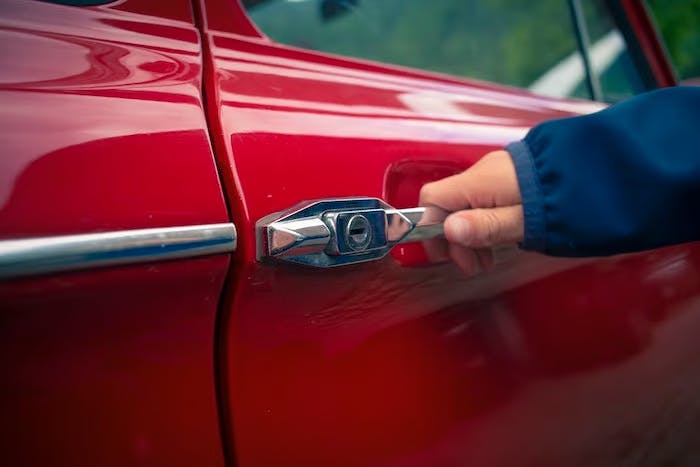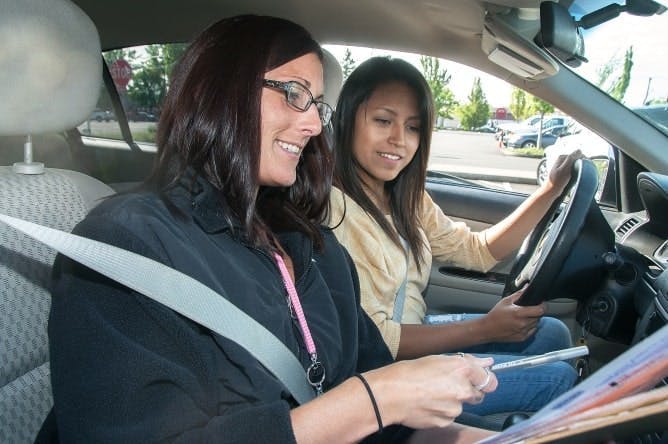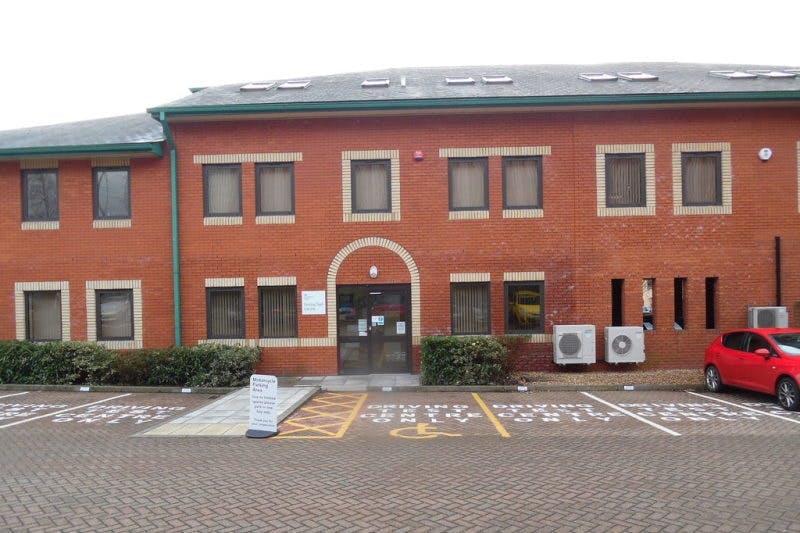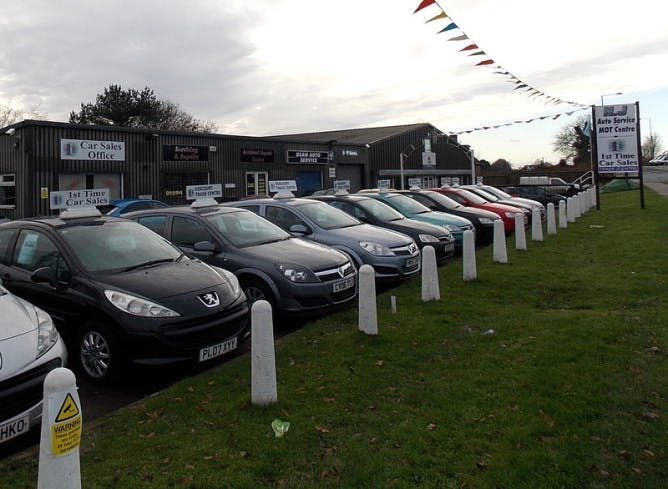
Virtually all of us know the normal route to getting a driving licence. You call up an instructor (or book online), take lessons and tests in their car, and, hopefully, pass. This path is so well trodden that you may think that it's the only option. By the same token, you could end up wondering if you're even allowed to explore other alternatives. One top question is whether you can learn to drive in your own car. We'll go through all the rules regarding learning in your own car so you can head out onto the roads prepared. So, whether you're unsure who can teach you or want the pros and cons, we've got the info you need.
Is it legal to learn to drive in your own car?

To start things off, we're going to clarify the legal side of things. Newcomers to driving tuition may be under the impression that they have to learn in an instructor's car. After all, this is definitely the norm—and in some other countries, it's the law. In the UK, though, learner drivers have a bit more flexibility.
You're completely within your rights to learn to drive in your own car should you wish. This could either mean that 100% of your tuition takes place in your car, or that you practise driving outside lessons to supplement learning in an instructor's car. So, that's that, then; question answered… right? Well, in reality, things are a bit more complex. Yes, you can learn in your own car, but you need to be aware of some important rules first. Let's dive in and see what this entails.
What are the rules for learning in your own car?

It often surprises learners to find out that, under UK law, there are actually relatively few restrictions on your driving. To begin with, there's no curfew: you're free to take to the road at any time of the day or night. Want to carry passengers? Go ahead! However, there are certain learner driver rules you need to follow to make sure you're on the right side of the law.
Firstly, you'll need to have a provisional licence in order to drive legally. Without one, you don't have the right to get behind the wheel of any car—your own or otherwise. So, if you haven't done this yet, find out how to apply for a provisional and get on it! Most people can start driving from the age of 17, but you may be able to start younger if you qualify for the higher rate of PIP or DLA.
Next, you'll need to affix some L plates to your car. One on the front and one on the back will suffice, provided they're clearly visible and don't block your view.
The last key rule to be aware of—and perhaps the most important—is that you cannot drive alone. Until you've passed your test and obtained a full licence, you must have a supervising driver at all times. You may think that this needs to be a registered driving instructor, but the rules are actually quite a bit more liberal. Let's find out who can help you learn to drive in your own car.
Who can teach you to drive in your own car?

Not just anybody is allowed to supervise a learner driver. Though the rules about who can sit in your car with you aren't too strict, you can't ignore them. So, remember: if you're going for a ride in your car, you'll need to have someone with you who:
- is at least 21 years old
- has a full driving licence issued in either the UK or EU/EEA
- is qualified to drive the type of vehicle you're learning in (e.g., a manual car licence if you're driving a manual car)
There's nothing in the law that states that the person supervising you must sit in the passenger seat. However, we highly advise that anyone helping you learn to drive in your own car does so. This way, they'll have a much better view of how you're operating the car's controls, and be able to provide better advice. Note that the rules don't specify that your supervising driver has to be an ADI. It's perfectly fine to learn without an instructor if you wish.
However, if the person teaching you isn't DVSA-approved, it's illegal for them to charge you for a lesson. Next, your supervising driver must abide by the same rules as you when you're behind the wheel. This means that they need to conform to eyesight requirements, avoid mobile phone use, and definitely cannot supervise if under the influence of drink or drugs. Finally, your insurance should cover both you and your supervising driver. As it happens, though, there's plenty more to delve into on the topic of insurance…
Do you need insurance to learn to drive in your own car?

We've arrived at one of the key differences between learning to drive in your own car and taking lessons with an instructor: insurance. Driving instructors will, as part of their work, have specific insurance policies in place. These provide cover for both the instructor and any learner driver using the car on a lesson. As a result, you don't have to pay for insurance when learning solely with an ADI. The instructor will, however, take the price of this policy into account when setting their rates.
If you're taking lessons in your own car, however, the burden of getting insurance falls to you. Don't believe the myth that states you can only get cover if you've already passed! Specific insurance policies for learner drivers are available, and are mandatory if you're learning in your own car. When deciding on which policy to go for, learners have three main choices.
The first of these is to become a named driver on someone else's policy. However, this option is more suitable if you're driving in their car rather than your own. If practising in your own car, then you should either choose a short-term or annual policy. Short-term is the best choice if you only need cover for a limited period prior to your test. This can range from a few hours to a few months, so there's plenty of flexibility here. Annual cover is best if you want to practise over a longer period, and sometimes converts automatically to a normal policy after passing. For full details, be sure to read our guide to insurance for learner drivers.
Is it cheaper to take driving lessons in your own car?

Gaining a life skill as important as driving means putting in plenty of work—and investing some cash. The cost of learning to drive can be eyewatering at times—so it's little wonder that many learners want to make savings where they can. So, is it cheaper to learn to drive in your own car than to go the traditional route?
Save on lessons…
To start off with, let's focus on the main positive of learning in your own car: no lesson fees. As mentioned above, it's illegal for your supervising driver to charge you for their time. This means that this aspect of your learning process is guaranteed to be completely free. With learners taking an average of 47 hours to pass, and with average lesson prices of up to £29 in some areas, you could therefore save close to £1,400! That's no small change—but it comes with drawbacks.
…but pay more elsewhere
For starters, there's the cost of the car itself. “But I'm going to buy a car anyway after I pass!” you say. True enough—but you'll need to factor in the cost of insuring your car while still learning. Learner policies are rarely cheap, so do your research before committing. Similarly, look into the amount of vehicle tax you'll need to pay for your car.
Next, think about what the running of your car will cost. The most obvious factor here is fuel, and you'll get through a lot more of it than you may think if you're practising regularly! You may also need to shell out for the likes of oil, wiper fluid and coolant. You also need to remember that you're responsible for the maintenance of your car. While we're not suggesting you'll be involved in any serious crashes, a few bumps are not uncommon for learners—and you'll need to pay for repairs.
Finally, there's the fact that it may take you longer to learn without an instructor. After all, they're the ones with the training to help you pass the test as it is today. Even a good supervising driver may not be completely au fait with the modern rules, and may inadvertently teach you their bad habits. In the worst case scenario, this could lead to you having to take the test multiple times—and forking out each time you do. Yikes!
Can you take the practical test in your own car?

As with many aspects of driving, there are plenty of myths surrounding the practical test. One of the more common such beliefs concerns the car you can take the test in. Some learners still believe that test centres have their own cars for candidates to use. This is not true. Similarly, there's no stipulation that you need to learn in an instructor's car. What does all of this mean? In short, it means that you're A-OK to take the driving test in your own car.
As always, however, you will need to abide by the usual rules if taking this course of action. To begin with, you'll need to make sure you've insured your car. “Hang on,” we hear you cry, “Didn't we just cover insurance?” Yes—insurance for lessons. However, you need to make sure that the policy you've got specifically includes insurance for your practical test. If not, then you'd be driving illegally, and won't be able to take your test.
Meeting test standards
The next step is to check that the car meets the standards set out by the DVSA for practical tests. It must:
- Have a current MOT
- Not have any tyre damage, with a minimum tread depth of 1.6mm and no spare tyres fitted
- Not have any dashboard warning lights showing
- Have 4 wheels
- Have a MAM of 3,500 kg or under
- Be able to reach speeds of at least 62 mph, with a mph speedometer
- Be smoke-free
You'll also need to make sure your car has L plates on the front and rear, a passenger seatbelt and head restraint and, just for the test itself, an extra interior rear-view mirror. Despite what you may have heard, it is legal for your car to have a dashcam. However, you must follow DVSA rules regarding filming a driving test, and must not film or record audio from the inside of the car. Electronic parking brakes and hill-start assist are acceptable features. Your car does not need to have dual controls.
The right model
It should go without saying that only a manual car will do if you're hoping to obtain a manual licence. However, you may not realise that there are specific models of car that you cannot drive in during your test. Specifically, these are:
- BMW Mini convertible
- Ford KA convertible
- Toyota iQ
- VW Beetle convertible
If using a panel van or other convertible car, check with the DVSA in advance.
Is it worth buying a car to learn in?

So far, we've focused this article on those who already own a car, and who want to use it for lessons and tests. But what if you haven't actually taken the step of buying a car yet? Is it worth taking the plunge? There are certainly plenty of benefits to getting your own car while still learning. First off, doing so gives you plenty of chances to practise—whether you decide to learn with an instructor or go 100% solo.
Additionally, by owning the car before passing, you'll know exactly what it's like by the time you're able to take to the road on your own. This can help to reduce the learning curve that often comes with adjusting to a new car. Yet another good reason is that, having already made the purchase, you'll be even more motivated to pass. In turn, when you reach a difficult juncture on your learning journey, you can stave off that urge to quit! Be mindful, though, that committing to owning a car can involve a large financial outlay. Consider seriously if you have the finances to afford a car now, or whether it would be better to buy a new or used car after passing.
Learning in your own car: pros and cons

By now, we've discussed virtually everything regarding whether you can learn to drive in your own car. But one question remains: should you? It's time to weigh up the pros and cons.
Pros
On the positive side, you aren't tied to a driving instructor. This means that you don't need to pay for their time—a saving compared to even the cheapest of driving lessons. It also means that you don't have to risk learning with someone you just don't get on with. You're also free to take lessons whenever you want, and to drive as much or as little as you see fit. (In fact, there are technically no requirements for you to take any lessons at all before your test.
Obviously, though, we do not recommend this course of action!) Learning in your own car also means you'll be building up experience in the vehicle you'll be owning over the longer term. This saves you the hassle of having to re-adjust to a new car after passing.
Cons
And now, onto the negatives. Let's start with the biggie: finances. Yes, you'll be saving on instructor hours. However, with everything from insurance and fuel to maintenance costs and repairs now on your shoulders, learning in your own car can put a squeeze on your wallet. Secondly, it may not always be easy for you to convince another driver to sit in the car with you. You may fancy taking the car out for a spin at 10pm, but your parents may not want to join!
With an ADI, however, you can often schedule lessons to take place at a time that suits you. Another key issue is that learning with a supervising driver does not compare to lessons with an ADI. Even an experienced motorist doesn't have the training required to teach the most up-to-date test standards. Worse still, they could accidentally teach you bad habits, putting you at a disadvantage both during your test and in the long term.
The verdict
There's certainly plenty to consider when deciding whether or not to learn to drive in your own car. In our opinion, the best solution is neither one nor the other, but both. As we've discussed, when you're new to the roads, an ADI will always provide gold-standard driving lessons. They'll be the best person to teach you how the test works today, and to help you avoid the common mistakes that a normal driver may make every day, but which an examiner would frown upon.
However, there's plenty of merit to taking lessons in your own car, too. That's why we would advise all learners to practise outside lessons if possible. This way, you'll balance experience in your own car with the best possible advice from a true pro. A win-win situation!
Subscribe for driving advice, offers & more
We'd love to let you know about our courses, news and offers via email. You may unsubscribe at any time.
Star Genie Limited trading as PassMeFast. Company number 10093359
Copyright © 2024 owned by Star Genie Limited
PassMeFast, Blue Tower, MediaCityUK, Salford, M50 2ST

